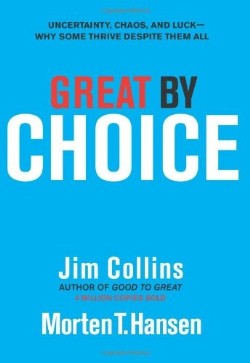Foretaste Of The Future
$28.99
For many Christians, the book of Revelation inspires confusion and fear.
It’s seen as a coded screenplay for the end times, or it’s just too strange to understand. The problem, Dean Flemming contends, is that when we read Revelation as focused on the future, we miss what it says about what God is doing in the world now.
Revelation is one of the richest texts in Scripture for understanding both God’s mission to make everything new and how the church is caught up in that mission. In Foretaste of the Future, Flemming mines this largely untapped resource by introducing a missional reading of Revelation. Drawing from a variety of cultural perspectives, Flemming explores Revelation’s original context, key themes, and transformational message that rings out for each new generation.
By reading Revelation in light of God’s mission, we gain a renewed vision of God’s great purpose to redeem and restore all creation through the work of the slain Lamb. We also see how God’s people are called to help offer a foretaste of salvation and healing now, along with insight on how to contextualize this mission in particular settings. A missional reading not only invites us to imagine the future; it teaches us to let the future cast its light into the present to guide our way.
in stock within 3-5 days of online purchase
SKU (ISBN): 9781514001561
ISBN10: 151400156X
Dean Flemming
Binding: Trade Paper
Published: August 2022
Publisher: InterVarsity Press
Print On Demand Product
Related products
-
And The Two Became One Journal
$16.50Add to cartHARDCOVER, COPTIC BOUND JOURNAL: Allows book to lay completely open when flat for ease of use
192-LINED PAGES: Journal measures 6.5 x 8.5 x 0.75-inches
BECOME ONE: White with gold foil print; reads “And the two shall become one”
INCLUDES 8 ALTERNATING PHRASES: Each page has a different message about marriage, relationships and love
-
Great By Choice
$29.99Add to cartThe new question
Ten years after the worldwide bestseller Good to Great, Jim Collins returns with another groundbreaking work, this time to ask: Why do some companies thrive in uncertainty, even chaos, and others do not? Based on nine years of research, buttressed by rigorous analysis and infused with engaging stories, Collins and his colleague, Morten Hansen, enumerate the principles for building a truly great enterprise in unpredictable, tumultuous, and fast-moving times.The new study
Great by Choice distinguishes itself from Collins’s prior work by its focus not just on performance, but also on the type of unstable environments faced by leaders today.With a team of more than twenty researchers, Collins and Hansen studied companies that rose to greatness-beating their industry indexes by a minimum of ten times over fifteen years-in environments characterized by big forces and rapid shifts that leaders could not predict or control. The research team then contrasted these “10X companies” to a carefully selected set of comparison companies that failed to achieve greatness in similarly extreme environments.
The new findings
The study results were full of provocative surprises. Such as:The best leaders were not more risk taking, more visionary, and more creative than the comparisons; they were more disciplined, more empirical, and more paranoid.
Innovation by itself turns out not to be the trump card in a chaotic and uncertain world; more important is the ability to scale innovation, to blend creativity with discipline.
Following the belief that leading in a “fast world” always requires “fast decisions” and “fast action” is a good way to get killed.
The great companies changed less in reaction to a radically changing world than the comparison companies.
The authors challenge conventional wisdom with thought-provoking, sticky, and supremely practical concepts. They include: 10Xers; the 20 Mile March; Fire Bullets, Then Cannonballs; Leading above the Death Line; Zoom Out, Then Zoom In; and the SMaC Recipe.Finally, in the last chapter, Collins and Hansen present their most provocative and original analysis: defining, quantifying, and studying the role of luck. The great companies and the leaders who built them were not luckier than the comparisons, but they did get a higher Return on Luck.
This book is classic Collins: contrarian, data-driven, and uplifting. He and Hansen show convincingly that, even in a chaotic and uncer






Reviews
There are no reviews yet.